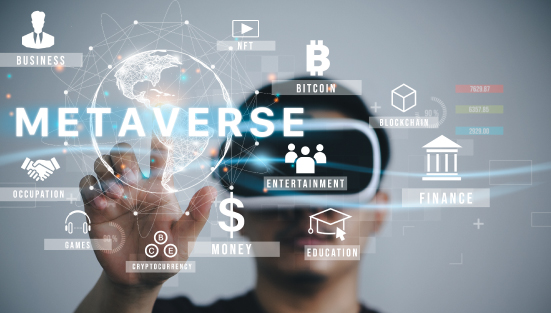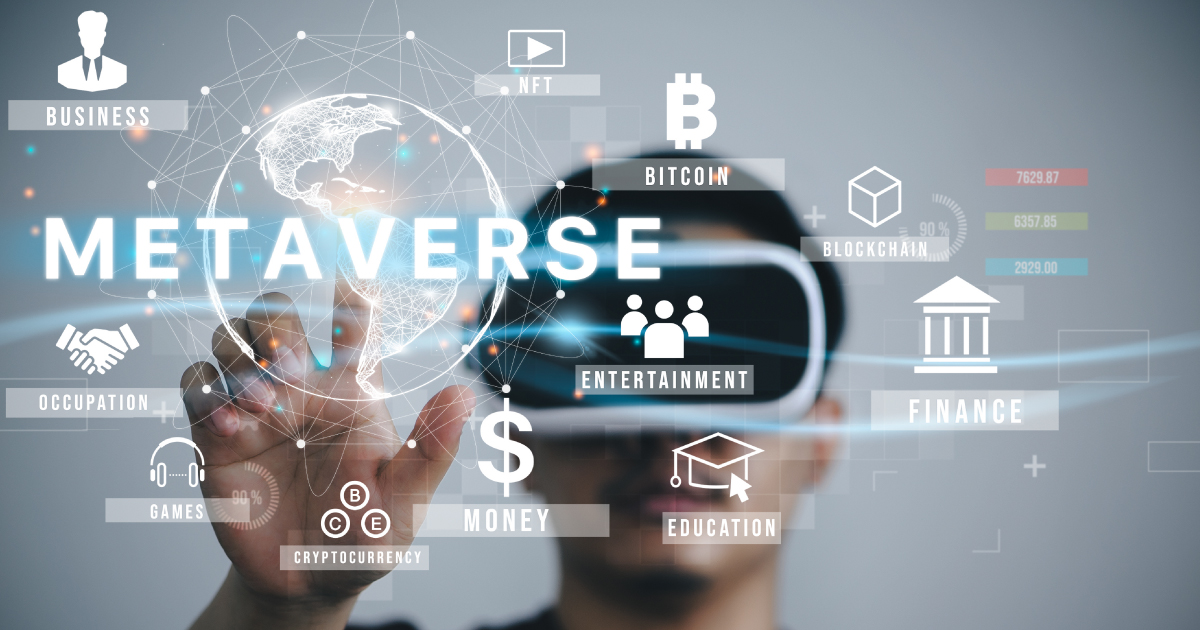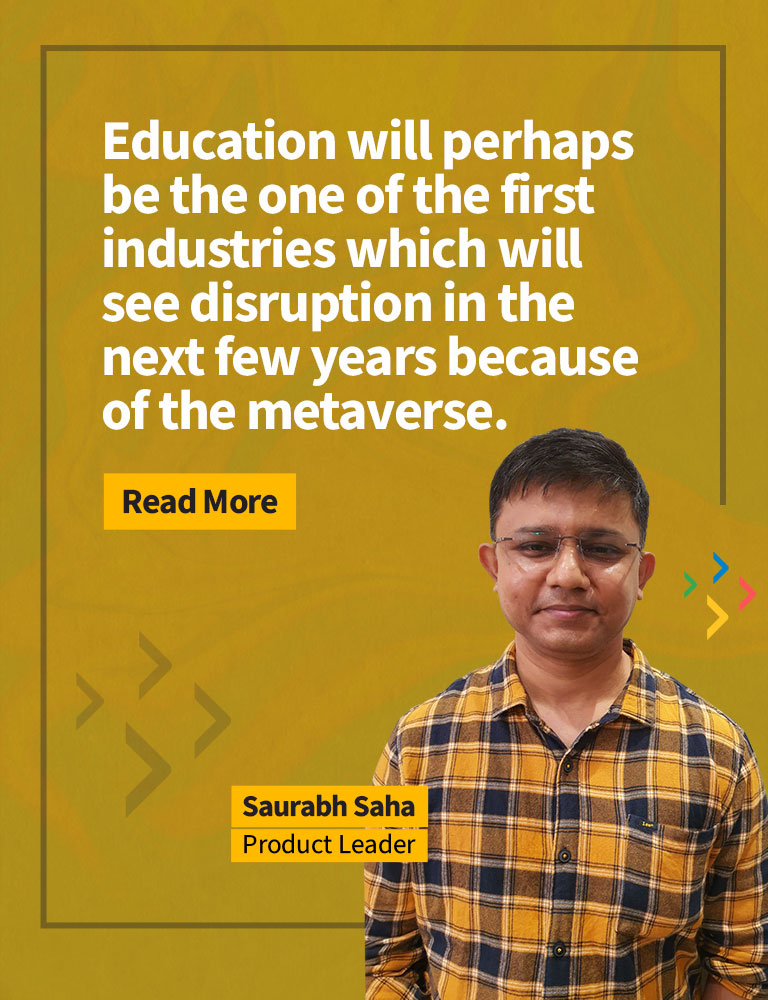Exploring Metaverse in the Skill Economy
- Virtual Reality
Neal Stephenson originally came up with the idea of ‘metaverse’ in his bestseller ‘Snow Crash’. Recently Facebook announced plans to delve deep into the metaverse and even changed its name to Meta. What was supposed to be a fad, has picked up quite well and a lot of companies like Roblox, NVDIA, Epic Games have shown deep interest in creating a metaverse. How metaverse will be manifested in the future seems more like a cross between science fiction and folklore but one thing which is definite is the impact it will have on several industries including education.

Education will perhaps be the one of the first industries which will see disruption in the next few years because of the metaverse. The disruption is because the education industry grappled with a lot of issues around remote during the pandemic. One of them was the social disconnect that a lot of students faced, being physically away from each other. Infact the pandemic shook the foundation on which the school model was devised. Social interaction and peer learning, which are vital to a child’s overall cognitive development, were snatched away from the kids making them rely only on digital tools to interact and articulate.
On the other hand, Web 2.0 was based on UGC (user generated content) over mobile, social and cloud. It opened the doors of democracy to every denizen of the digital landscape making it an extremely powerful tool for empowerment across the world. However it still lacked the embodied experience one would need to have more responsive interactions. We can’t deny the fact that all human beings are sentient creatures and conversation devoid of sentience can somehow result in chaos. Especially when the target group being spoken about is students. Students need powerful experiences around each other to learn new things and develop a worldview of their own. That would require them to have either a physical experience or an embodied digital one.
Metaverse seems to fit the bill where students will now get to experience through a mix of VR (virtual reality) and AR (augmented reality) an embodied experience inside the metaverse. The metaverse would revolutionize the education industry forever. It will completely revamp and optimize the school experience for children. Children would now be able to be part of a class which has their friends and classmates, right from the confines of their homes quite similar to what Mark Zuckerberg showed in his video.
According to the metaverse primer blog by Mathew Ball and a host of other blogs, one thing is clear as we are try to understand the impact of the metaverse on human civilization. Several different industries that are supposed to cross-collaborate and create the metaverse are actually working together to ensure that metaverse is no longer a page out of a Neal Stephenson book but an artificial reality that would change the human civilization forever.
Metaverse would also be responsible for creating a different set of jobs which would need people to have new age skills. Reading Preethi Kasireddy’s blog on how to build Apps or decentralized applications on Web 3.0, one would realise that it is fundamentally different from how apps were being built for web 2.0. One would need to understand Web 3.0 related skills quite effectively to be able to power themetaverse. The metaverse will need several aspects of Web 3.0 to run these artificial utopias.

The larger question is that, with such level of disruption, are we prepared to fill in this talent gap? Will the current technical skills that students have, hold relevance as we move towards the future? Will EdTech ride the new skill bandwagon and train students for future jobs that the metaverse and Web 3.0 will create? While we need the metaverse to leapfrog into the future, we also need folks who can help power or build the metaverse, which translates to millions of jobs worldwide with specialized skills.
I’d like to conclude by quoting Suzie Boss, “The first step in teaching students to innovate is making sure that educators have opportunities to be innovators themselves”. This is where FutureSkills Prime can play a pivotal role in empowering students and teachers in our country. It can be leveraged to enable learners in emerging technologies through which future tech around metaverse can be created using the powerful Web 3.0 standards.
Written by Saurabh Saha, Product Leader


